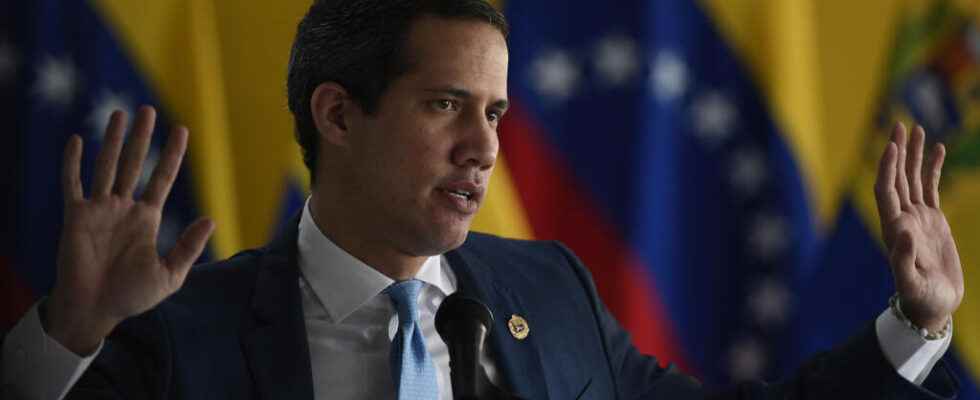The opposition to Venezuelan President Nicolas Maduro has postponed to January 3, and no longer to Thursday, December 29, its decision concerning the end or not of the “ interim government by opponent Juan Guaidó.
Juan Guaidó, this former president of the National Assembly, himself from the opposition, proclaimed himself “interim president” in 2019 to protest against the second investiture of Nicolas Maduro, whose re-election was considered fraudulent .
The opposition was initially to decide on Thursday, December 29 whether or not the continuity of this alternative government, which emerged in 2019 when the opposition to Nicolás Maduro and the international community refused to recognize the re-election of the heir of Hugo Chávez.
” I accept […] the postponement of the session in virtue of the defense of the Constitution and the necessary unity for an agreement for Venezuela and the Venezuelans “, announced Juan Guaidó on Twitter. He had indeed been recognized in his function as “interim president” by more than 50 countries of the international community.
In atención a las solicitudes publicas realized por various deputados de la AN, asumo como su Presidente el diferimiento de la sesión en procura de la defense de la constitución y la necesaria unidad en pro de un acuerdo por Venezuela y los venezolanos. https://t.co/Zm9BdTLZBL
— Juan Guaido (@jguaido) December 29, 2022
The opposition dissatisfied with the strategy of Juan Guaidó
But today, a majority of the opposition parties believe that its strategy did not work the expected results. Three of these four major parties also reaffirmed it on Wednesday December 28, and all three regret the postponement of the vote to January 3. Now, the opponents rely instead on negotiations with the socialist regime to organize elections, a radical change of strategy.
Because even if for Juan Pablo Guanipa, member of the Primero Justicia party, in favor of the disappearance of the “provisional government”, it is necessary to ” speak longer of this decision so as not to divide the opposition, the three parties believe that Juan Guaidó and his interim government have not obtained any tangible results to improve the daily lives of Venezuelans.
” The Provisional Government has ceased to be useful […] and is of no interest to citizens “, they assured in a press release Tuesday, December 27. The four parties also made it known that they had not been consulted before Juan Guaidó’s announcement of the postponement of the decision.
Juan Guaidó has been calling for regime change since 2019. This self-proclamation has remained a dead letter, it has no effective consequences in the country. Juan Guaidó’s position is no longer the one chosen by the majority of the opposition.
Thomas Posado, doctor in political science and specialist in Venezuela
► To read also: In Venezuela, talks between Maduro and the opposition will soon resume in Mexico
” Fight the dictatorship »
For the principal concerned, these allegations are false. On his Twitter account, Juan Guaidó recalls that the recognition of his status by the international community has made it possible to remove the Venezuelan assets abroad to the covetousness of Nicolas Maduro’s regime, a regime suspected of embezzlement of public funds and corruption.
” It is the constitutional legitimacy of the interim presidency that protects these regime assets. It’s not about defending Juan Guaidó! I call today to do what is best for the country: let us use all means to fight the dictatorship! Let’s not give up on the progress we’ve made “, said the Venezuelan himself on December 28.
El 29 se dará la secunda discusión de la reforma de la Ley del Estatuto para la Transición. Defender a nuestra gente y la constitución son prioridad para nosotros.
Este es nuestro mensaje al país: pic.twitter.com/aSJNjomGD6
— Juan Guaido (@jguaido) December 27, 2022
If a majority of the opposition wishes to put an end to the “mandate” of self-proclaimed President Guaidó, the international community will have to decide the future of Venezuelan assets frozen abroad.
(And with AFP)
